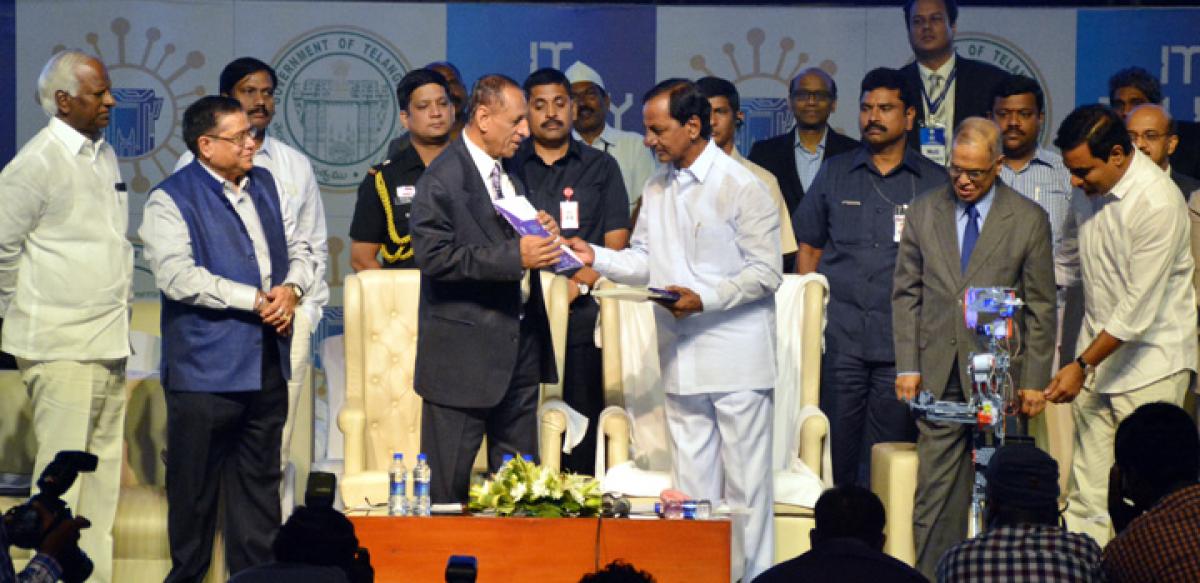A futuristic policy

The new Information and Communication Technology Policy (ICT) Framework 2016 rightly aims to embellish Telangana state even further to make it stand out as the most preferred destination for the global and the Indian IT companies. The policy thus attempts to encompass wide areas of IT, ITES, electronics and a host of allied sectors.
The new Information and Communication Technology Policy (ICT) Framework 2016 rightly aims to embellish Telangana state even further to make it stand out as the most preferred destination for the global and the Indian IT companies. The policy thus attempts to encompass wide areas of IT, ITES, electronics and a host of allied sectors.
It stands on a firm foundation of developed IT sector in the state. Hyderabad has already become a premier global destination for IT and ITES industry of India, next only to Bengaluru. In fact, the IT sector in the state too faces challenges in the wake of global economic slowdown, resulting in weak global demand for software exports.
Companies are adopting various methods such as diversification of market base towards emerging and developing countries, product diversification and cost reduction etc., said the Socio Economic Outlook 2016, Government of Telangana. Given these challenges, a proactive ICT policy is the need of the hour to galvanise the state’s strengths in the sector.
In a bid to attract investment in this highly competitive sector, the ICT policy makes a slew of incentives to lure global and domestic capital. The real challenge lies, however, in ensuring that the incentives thus given deliver intended benefits. The incentive structure is also carefully calibrated to ensure social equity and value addition. For instance, a specific set of incentives are offered in this policy for research and development. Encouragement to small-scale and mid-scale companies would help in ensuring equity.
The announcement of separate sub-policies for rural technologies and gaming and animation sectors is certainly a breakthrough. It’s too early to expect the possible employment generation in this sector, but the gaming and animation sector would certainly bring branding and revenues to the state. This sector being a niche area, one cannot make local employment mandatory.
Therefore, skill development initiatives announced in the policy assume greater significance. Despite proliferation of engineering colleges in and around Hyderabad, the employability of the graduates being churned out by these educational factories remains questionable. The policy to promote skill development should actually translate into creating a sound skill eco system that links skill providers, skill users and those for whom the skills are to be imparted.
More focus is needed on promoting auxiliary industries in the electronics and communication sector to help the large pool of semi-skilled youth available in the state. Though the innovation policy of the state is in right direction, Hyderabad still lags behind states like Karnataka and Kerala in building up a start-up eco system. The government alone cannot do this through policy intervention. The work culture eco system and entrepreneurial capabilities have to be harnessed.
The ICT policy makes yet another attempt to take IT sector to Tier–2 cities. The experience in this regard in the united Andhra Pradesh was not so encouraging. The Telangana should learn from these failures. The policy is comprehensive and path-breaking. It is a beginning. Execution is the challenge. Society has to live up to the efforts of the government. The industry has to be proactive in risk taking. Despite the glitter of this sector, the bricks and mortar economy still has a greater relevance in our economic landscape.








